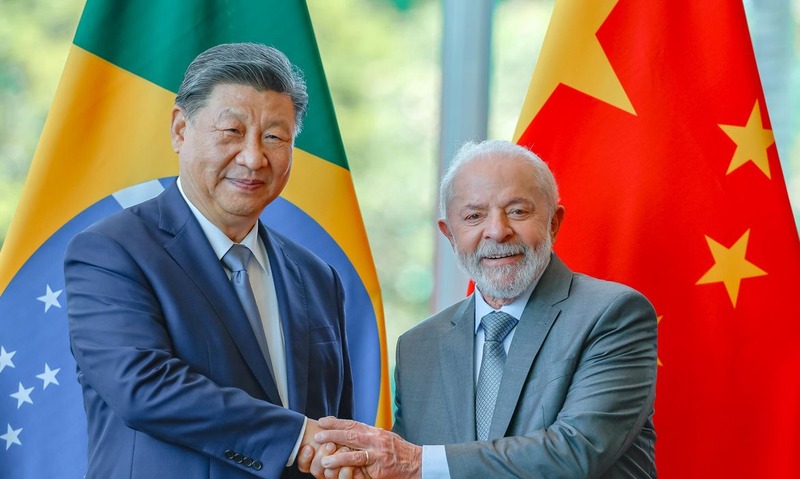Already a subscriber? Make sure to log into your account before viewing this content. You can access your account by hitting the “login” button on the top right corner. Still unable to see the content after signing in? Make sure your card on file is up-to-date.
China has come to Brazil’s defense and has vowed to strengthen bilateral trade following new tariffs imposed by President Donald Trump.
Some shit you should know before you read: Last week, the United States imposed new tariffs on Brazilian imports and sanctioned a top Brazilian Supreme Court justice. The 50% tariffs, announced by President Trump, were framed as a response to Brazil’s ongoing prosecution of former President Jair Bolsonaro (who Trump is friends with and has repeatedly condemned as a politically motivated witch hunt). In addition, the US Treasury sanctioned Justice Alexandre de Moraes under the Global Magnitsky Act, accusing him of human rights violations, including censorship, politically driven prosecutions, and suppression of dissent.

What’s going on now: In a notable development, Chinese Foreign Minister Wang Yi criticized the United States’ new 50% tariffs on Brazilian imports, calling them “arbitrary” and “unsustainable.” Speaking during a phone call with Celso Amorim, chief adviser to Brazilian President Luiz Inácio Lula da Silva, Wang stated that “China firmly supports Brazil in safeguarding its national sovereignty and national dignity, and opposes unwarranted external interference in Brazil’s internal affairs.” He stressed that “using tariffs as a weapon to suppress other countries violates the UN Charter, undermines WTO rules, and is both unpopular and unsustainable.”
Wang also said that China would “support Brazil in defending its right to development and resisting the bullying imposition of tariff measures.” He pledged to deepen bilateral cooperation “in various fields” and to “effectively offset various external uncertainties” through what he described as the “stability and complementarity” of the China–Brazil partnership.
This all comes as China authorized 183 Brazilian coffee companies to export to China under five-year permits. This move was followed by a supply agreement with Luckin Coffee, worth $2.5 billion, to purchase 240,000 metric tons of Brazilian beans between 2025 and 2029.
China’s embassy in Brazil noted that coffee “has been gaining a place in the daily lives of the Chinese” and said they were preparing to expand these purchases into other areas of Brazil’s agricultural industry.







